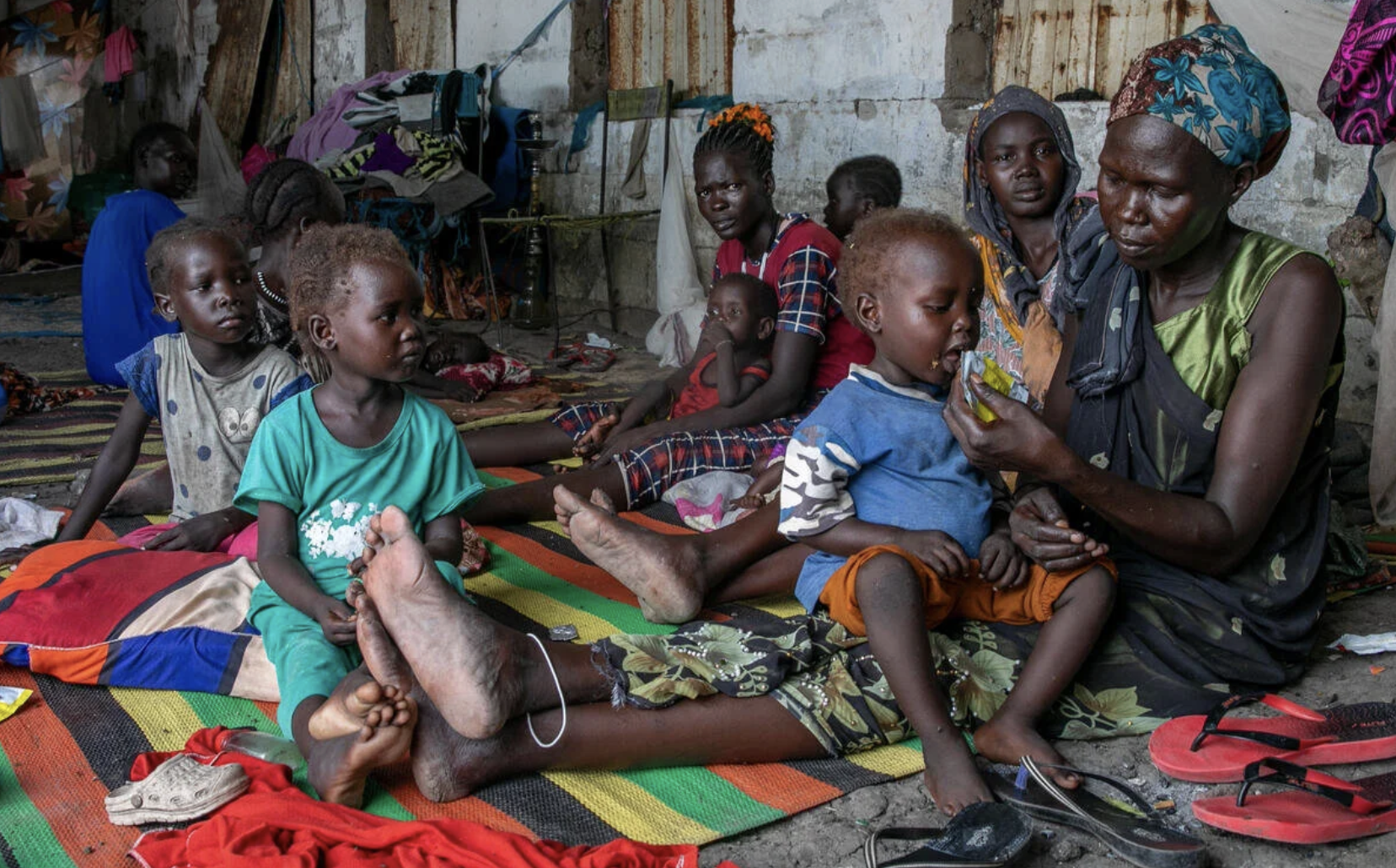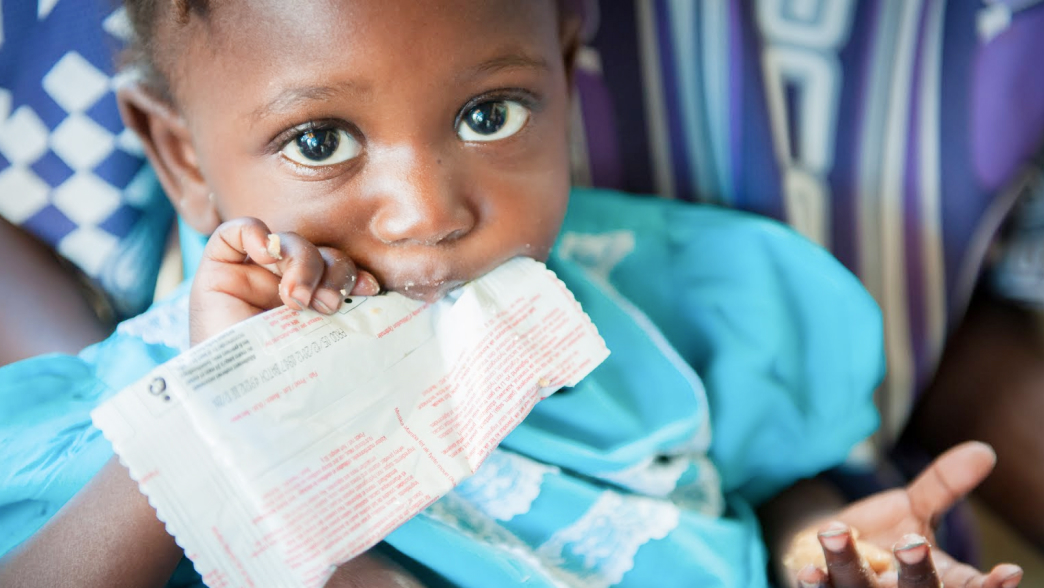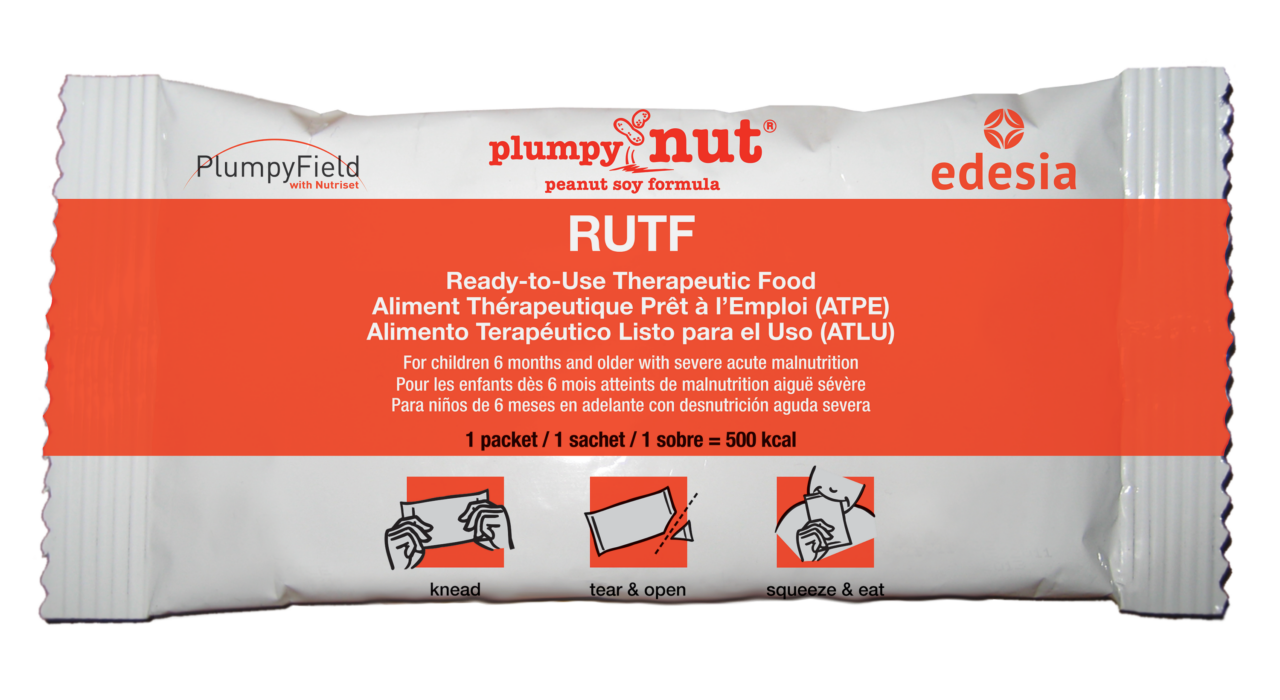Children in Sudan are facing one of the worst humanitarian crises in the world, with millions at risk of hunger and malnutrition already taking hold. Families are trapped by conflict, displacement, and a collapsing food system. At Edesia, we are working urgently to get life-saving nutrition to the children who can’t wait.
Help us reach Sudan’s children by donating below.


As food prices rise and fall, we adjust formulas; as roads get treacherous, we find new routes; when factories get bombed, we help rebuild. Nothing stops us from going where we can do the most good.
Every 11 seconds a child dies
from severe malnutrition
We’ve saved 28 million lives in 65 countries.
We’re just getting started.

Plumpy’Nut is a life-saving peanut-based paste made from milk powder, peanuts, soy, oil, sugar, and vitamins and minerals. Every day, we produce 1,200,000 packets of Plumpy’Nut to help treat malnutrition.
Every year, we can make up to 88 million pounds of life-saving food at our factory in Rhode Island—using peanuts from Georgia, milk from Wisconsin, soy from Iowa, and other commodities from 15 states. When we fight hunger abroad, we strengthen American jobs, American agriculture and American security. As Ronald Reagan reminds us,